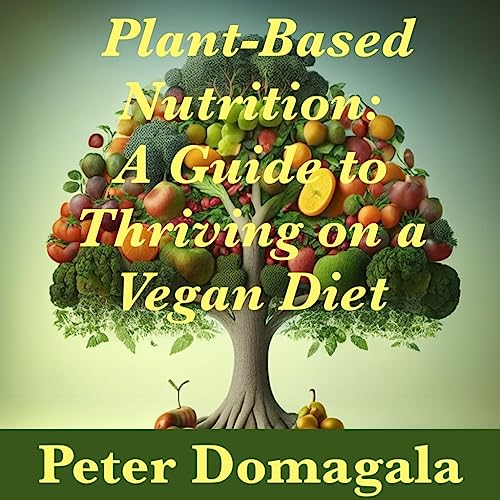I remembered the day like it was yesterday. It was a gloomy Monday morning, and I had just finished watching a powerful documentary that shed light on the impact of animal agriculture on the environment, animal welfare, and human health. Something inside of me shifted, and I knew it was time for a change. It was the day I decided to embrace a plant-based lifestyle and go vegan.
The journey towards adopting a vegan lifestyle isn’t always easy, but it’s certainly worth it. Not only did I feel like I was making a positive difference in the world, but I also began to notice remarkable changes in my overall well-being. As I embarked on my plant-based journey, I quickly realized that nutrition played a vital role in ensuring I was getting all the necessary nutrients my body needed.
Transitioning to a plant-based diet can be overwhelming at first, but with the right information and guidance, it becomes a gratifying and exciting experience. So, if you’re considering going vegan but aren’t sure where to start, worry not. In this blog post, I’ll share insights and tips on plant-based nutrition to help you on your journey.
The foundation of a plant-based diet is centered around consuming whole foods that come from plants. Fruits, vegetables, legumes, whole grains, nuts, and seeds form the building blocks of a well-rounded vegan meal plan. Now, it’s essential to make sure you’re meeting your nutritional needs while excluding animal products from your diet.
Protein is one of the most commonly discussed nutrients when it comes to a plant-based diet. Contrary to popular belief, it is absolutely possible to meet your protein requirements on a vegan diet. Beans, lentils, soy products like tofu and tempeh, quinoa, and hemp seeds are excellent sources of protein. Incorporating a variety of plant-based protein sources throughout your meals ensures that you’re getting all the essential amino acids your body needs.
Another vital nutrient to pay attention to on a vegan diet is calcium. Contrary to the common belief that dairy is the only source of calcium, there are plenty of plant-based alternatives available. Leafy greens like kale, spinach, and collard greens, fortified plant-based milk, tofu, and almonds are all excellent sources of calcium. It’s crucial to ensure you’re getting enough calcium to maintain bone health and prevent deficiencies.
Iron is yet another nutrient that can be obtained from plant-based sources. While it’s true that iron from plant foods is not as readily absorbed as iron from animal products, combining iron-rich foods with sources of vitamin C can increase absorption. Leafy greens, lentils, chickpeas, and fortified cereals are all great plant-based sources of iron. Including these foods in your meals can help avoid iron deficiency and maintain optimal energy levels.
One nutrient that often raises concerns for vegans is vitamin B12. Vitamin B12 is primarily found in animal products, so it’s crucial to supplement or incorporate fortified foods to avoid deficiency. A variety of plant-based milk, breakfast cereals, and nutritional yeast are often fortified with vitamin B12. Talk to your healthcare provider about the right supplementation or fortified food options for you.
Omega-3 fatty acids, particularly DHA and EPA, are essential for brain health and have been traditionally associated with fish and fish oil. However, it’s possible to obtain these healthy fats from plant-based sources as well. Flaxseeds, chia seeds, walnuts, and algae-based supplements can provide the necessary omega-3 fatty acids in a vegan diet, ensuring adequate brain function and overall well-being.
Now that we’ve covered some of the key nutrients, it’s important to focus on meal planning and exploring vegan recipes. The internet is a treasure trove of plant-based recipe blogs, vegan cookbooks, and online communities that can inspire and guide you on your culinary journey. Experimenting with new recipes and flavors can make the transition to a vegan lifestyle exciting and enjoyable.
Finally, it’s essential to remember that going vegan is not just about what you eat but also about living consciously and ethically. Being mindful of the products you use, such as cosmetics and clothing, and choosing cruelty-free alternatives can further align your lifestyle with your values.
As you embark on your plant-based journey, it’s important to approach it with patience and kindness towards yourself. It’s okay to make mistakes or face challenges along the way. It’s all part of the learning process. Surrounding yourself with a supportive community of like-minded individuals can provide encouragement, guidance, and inspiration when the going gets tough.
Transitioning to a plant-based lifestyle has been one of the most rewarding decisions I’ve made. Not only have I experienced improved physical health, but I’ve also found a sense of fulfillment in knowing that I’m contributing to a more sustainable and compassionate world. So, if you’re considering going vegan, jump right in, educate yourself on plant-based nutrition, and embrace this transformative journey. Your body, the planet, and the animals will thank you for it.

